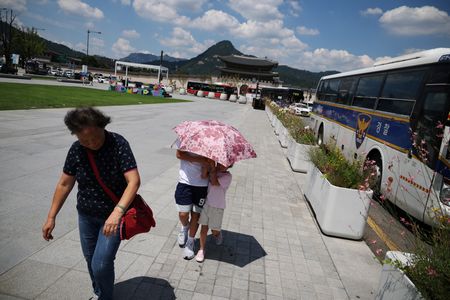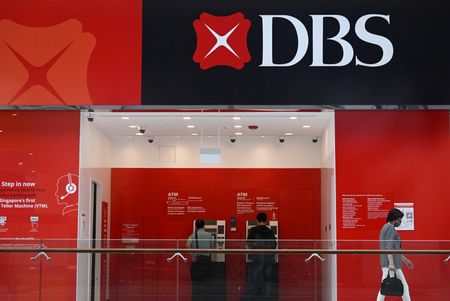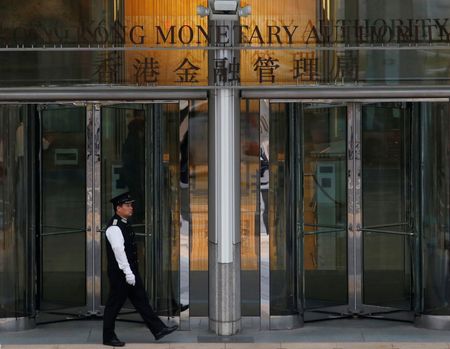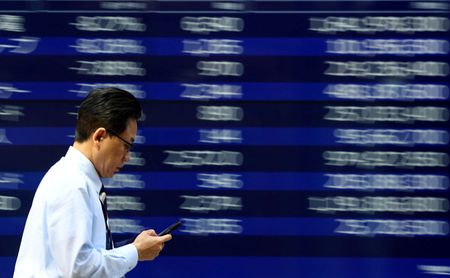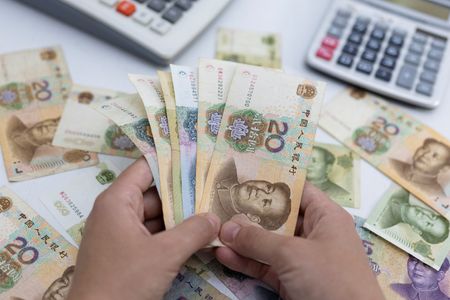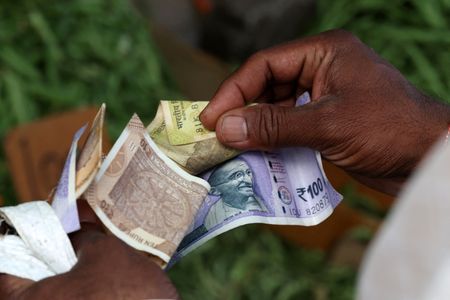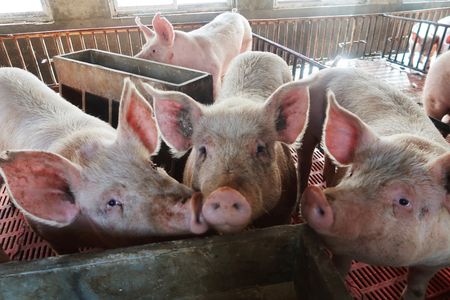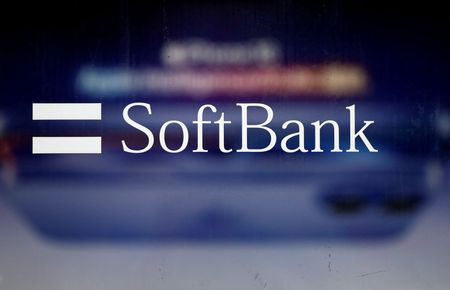By Sudarshan Varadhan and Heekyong Yang
SEOUL (Reuters) -Sweltering summers in South Korea are driving surging demand for air conditioners and electricity, with the country’s electronics heavyweights pushing home upgrades by touting power-saving technology.
Samsung Electronics’ domestic home AC sales grew by 50% in the first quarter of 2025 ended March compared to the same period last year, while rival LG Electronics recorded 60% higher domestic sales in the same stretch ahead of a hotter-than-expected summer.
Sales have boomed despite government estimates that 98% of households in the country of 51 million people already have air conditioning, as the companies charm consumers by marketing improved cooling and energy efficiency, and AI-powered models.
“We expect the favorable trend in global air conditioner sales to continue, driven by growing demand for eco-friendly and high-efficiency products due to ongoing climate change,” Samsung told Reuters in a statement, without giving specific sales details.
LG said it expects its air conditioner business to keep growing this year as customers replace old units with more efficient models.
Temperatures in Seoul have hit record highs this summer, reaching 37.8 degrees Celsius (100.4 Fahrenheit) in early July, before the traditional hottest month of August.
Longer, stronger heatwaves are driving AC sales globally and cooling is expected to account for a significant amount of the global growth in power demand over the next decade.
Global power demand for cooling systems is set to rise by around 1,200 terawatt hours by 2035, outstripping a projected 800 TWh increase in demand from data centres, according to the International Energy Agency (IEA).
The global air conditioner market is projected to grow at an average of 6.3% annually through 2032 to $257.2 billion, according to Renub Research. The IEA expects 50% of households to have air conditioners by 2035, compared with 36% in 2022.
This year, LG operated its air conditioner production line above full capacity, while Samsung started operating at full capacity 10 days earlier than usual, according to their websites.
South Korea’s energy ministry has warned of record electricity usage straining the power grid, with peak demand potentially hitting a record 97.8 GW between 5 p.m. and 6 p.m. on weekdays in the second week of August, mainly from AC use.
The sticky nature of air-conditioning power demand – which officials say stays high once it rises – has pushed South Korea to shore up power reserves, boost imports of coal, and put underused power plants running on the fuel on standby.
Residential air conditioning made up 16% of annual power demand in South Korea last year, compared with 14% before the pandemic. Government officials are also distributing energy vouchers and relaxing tariffs to aid air conditioning use among low-income groups.
(Reporting by Sudarshan Varadhan in Singapore and Heekyong Yang in Seoul)

